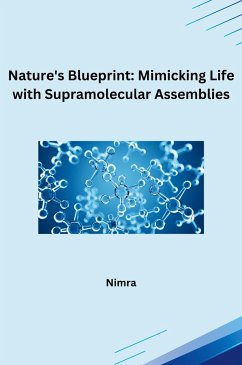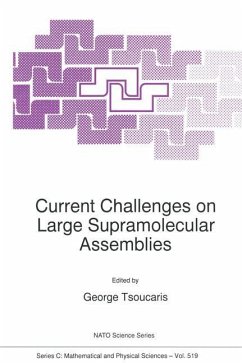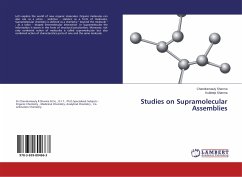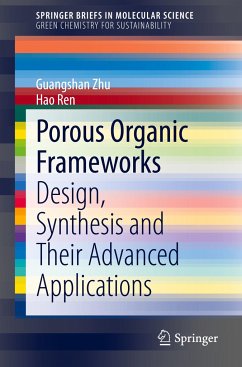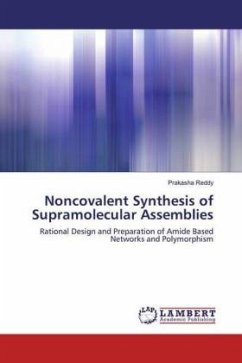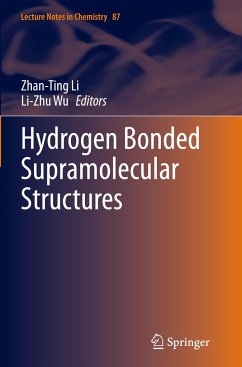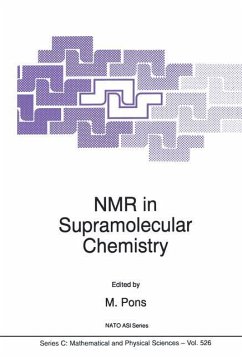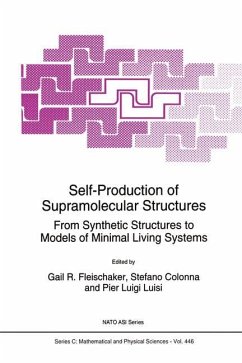![Supramolecular Assemblies of Cucurbit[n]urils with Metal Ions Supramolecular Assemblies of Cucurbit[n]urils with Metal Ions](https://bilder.buecher.de/produkte/42/42243/42243115z.jpg)
Supramolecular Assemblies of Cucurbit[n]urils with Metal Ions
Coordination, Structures and Properties

PAYBACK Punkte
19 °P sammeln!
This book shows the various porous structures and supramolecular architectures that result from the cucurbituril-based coordination, hydrogen bonding, ion-dipole interactions, pi pi stacking and C-H pi processes. It includes two chapters presenting essential examples of these cucurbituril-based structures, depending on the types of non covalent interactions and inducer species. It also includes one chapter dealing with the utilization of cucurbiturils as a molecular container in supramolecular chemistry and demonstrating a wide range of potential applications of supramolecular assemblies with ...
This book shows the various porous structures and supramolecular architectures that result from the cucurbituril-based coordination, hydrogen bonding, ion-dipole interactions, pi pi stacking and C-H pi processes. It includes two chapters presenting essential examples of these cucurbituril-based structures, depending on the types of non covalent interactions and inducer species. It also includes one chapter dealing with the utilization of cucurbiturils as a molecular container in supramolecular chemistry and demonstrating a wide range of potential applications of supramolecular assemblies with cucurbiturils in catalysis, separation, absorption and polymer materials. The book offers an interesting and valuable guide for readers working in the areas of supramolecular chemistry and materials.




